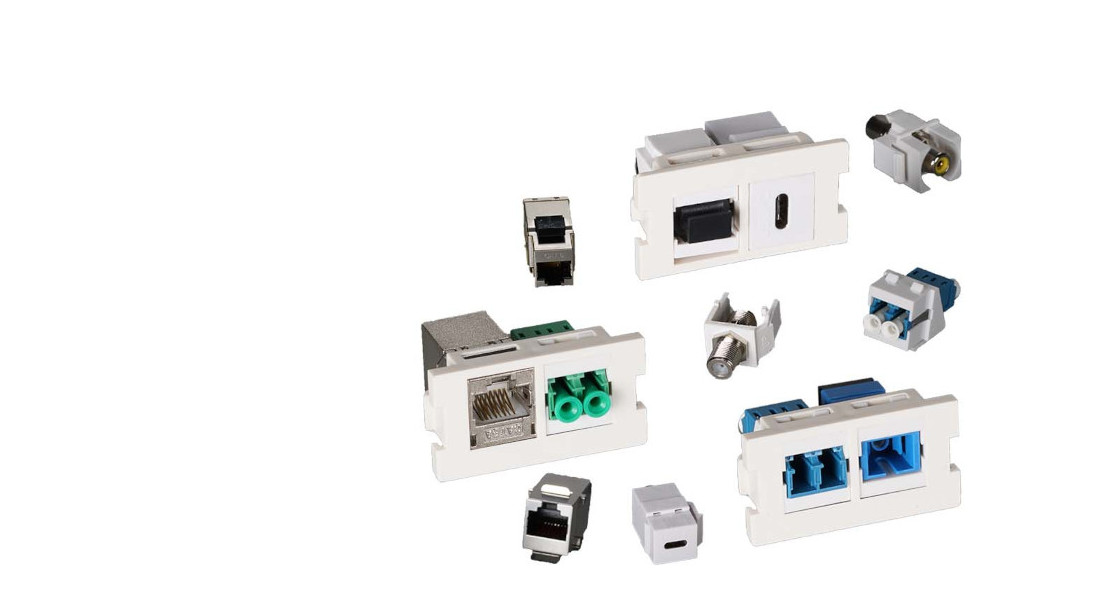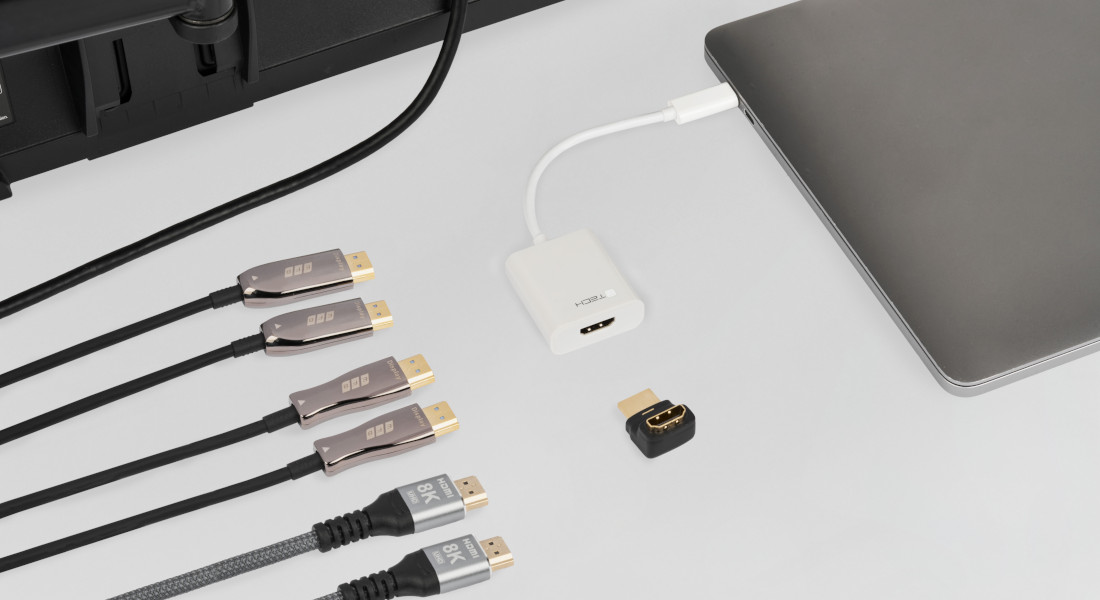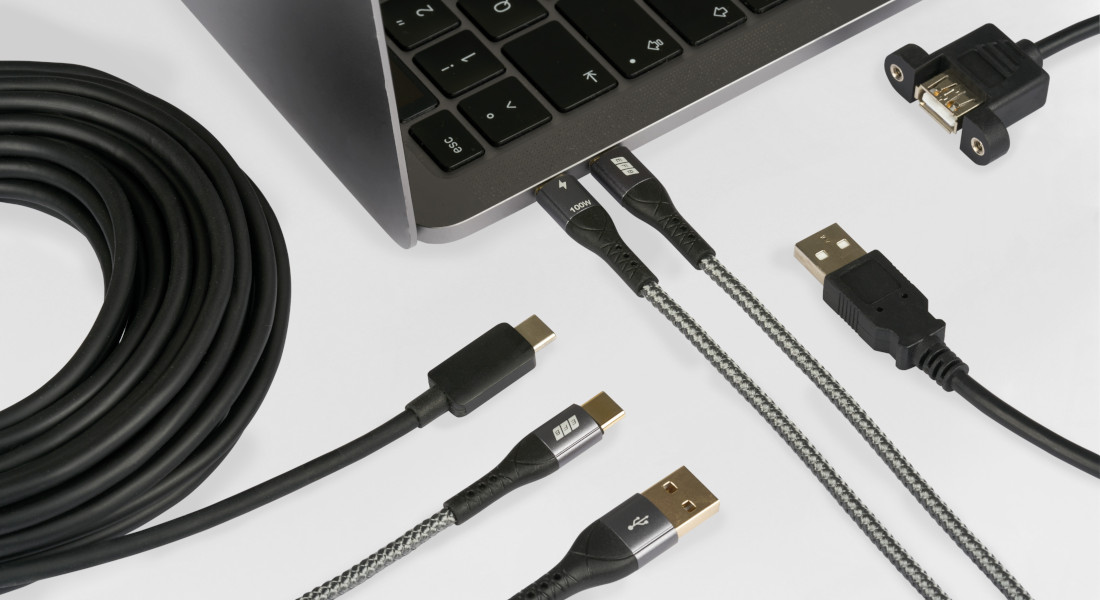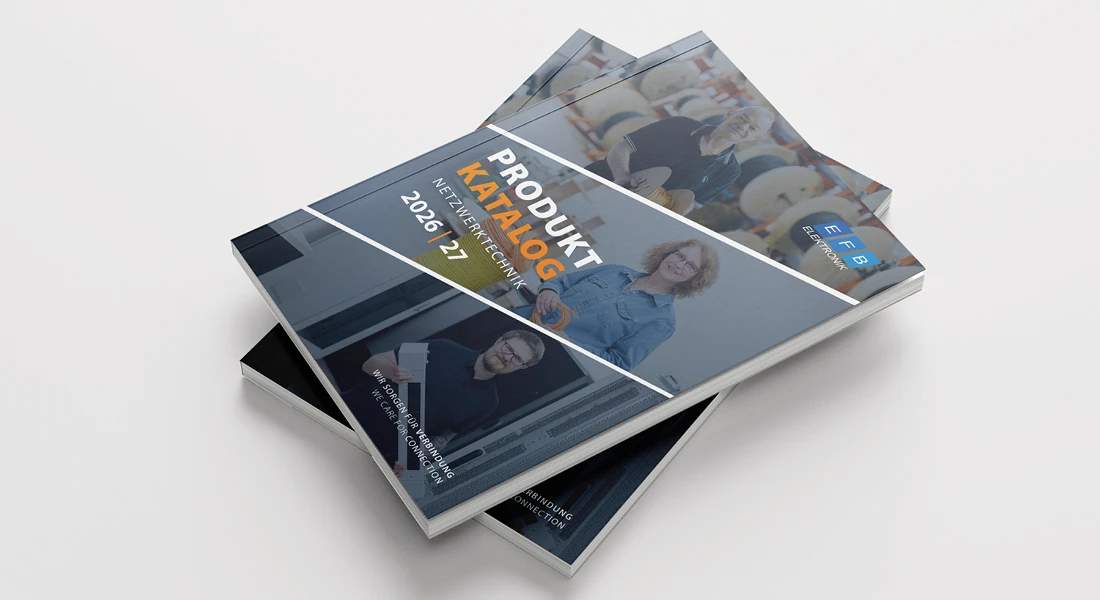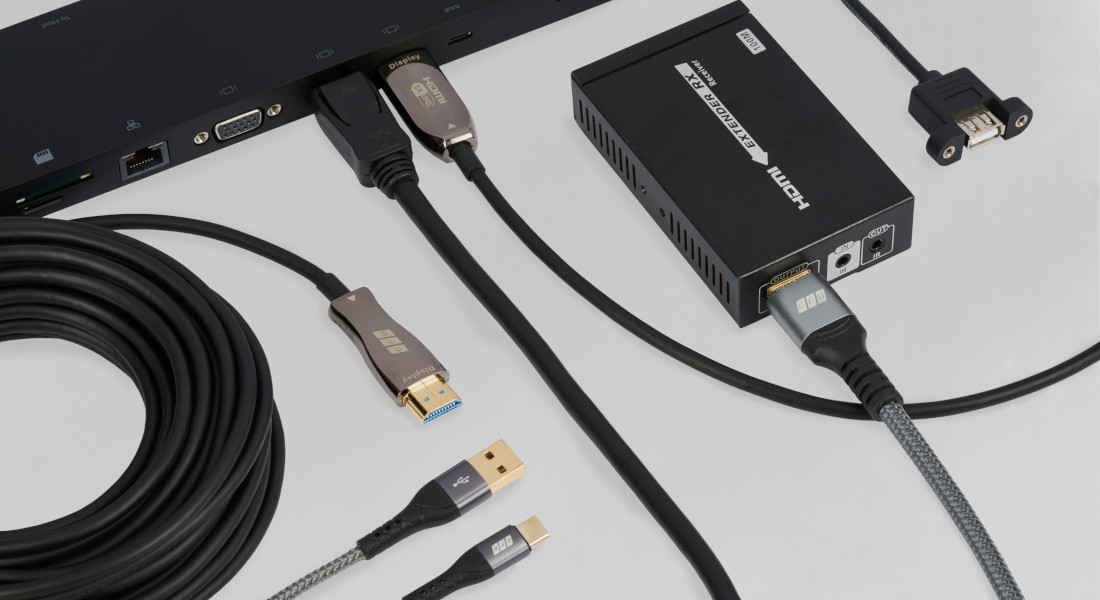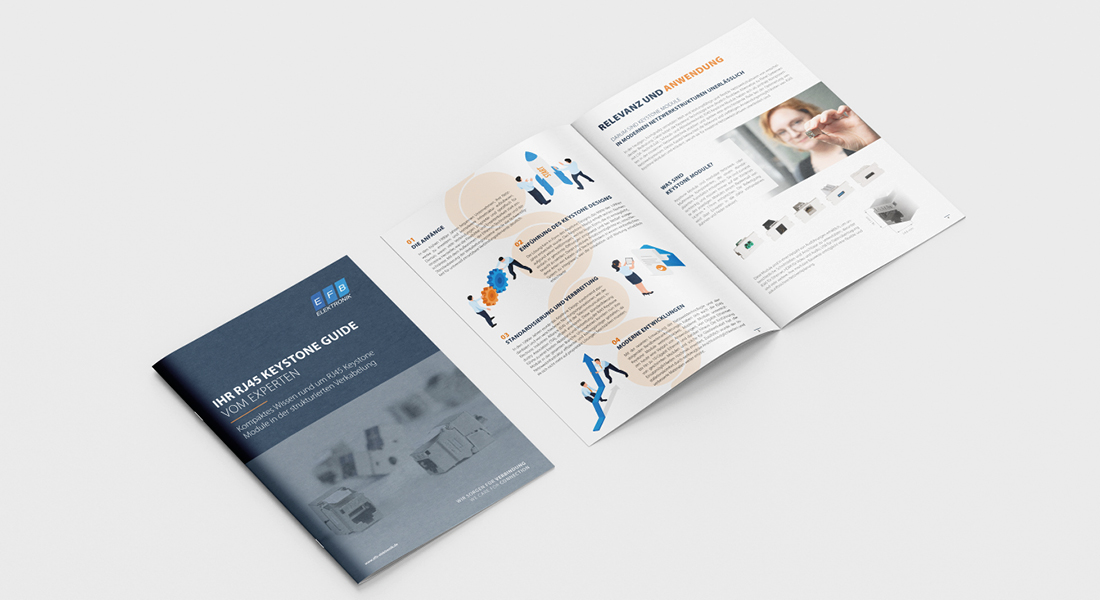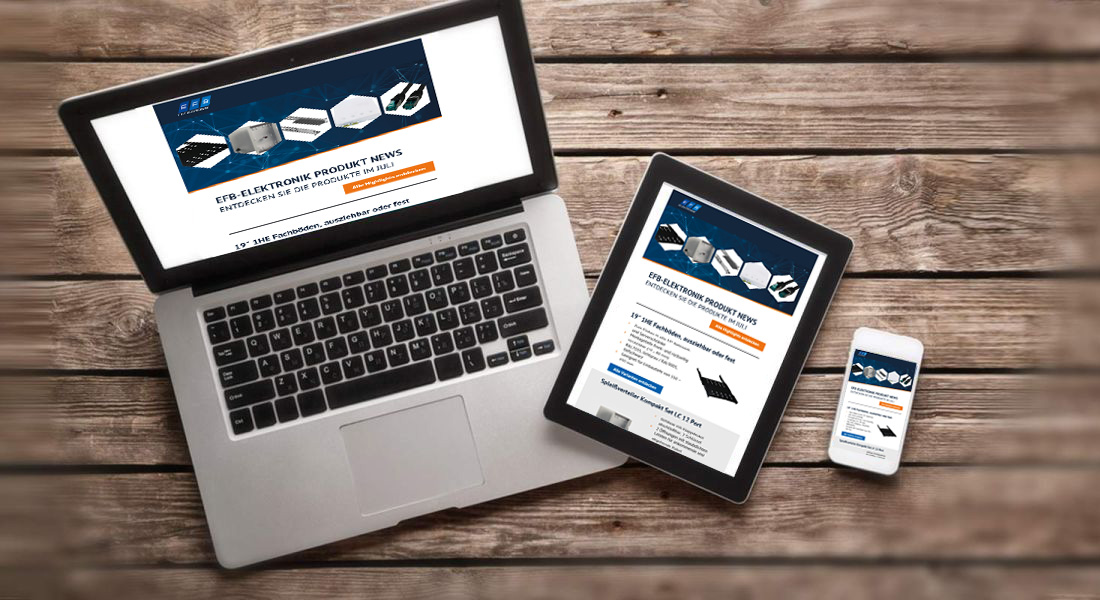General Terms and Conditions
Striegauer Str. 1 · 33719 Bielefeld
Phone +49 (0521) 40418-0
Email: info(at)efb-elektronik.de
VAT ID No.: DE126943218
Commercial Register Bielefeld HRB 33008
Board of Directors: Robin Ohle, Nana Heinemann
General Terms and Conditions
A. Scope of the General Terms and Conditions of Business of EFB
B. Terms and conditions of purchase and ordering
C. General terms and conditions of service
D. Special Terms and Conditions for the “EFB Web Shop”
A. Scope of the General Terms and Conditions of Business of EFB
A.1
These Terms and Conditions shall apply to all business relationships between EFB and its contracting
partners, even if specific reference to the Terms and Conditions is no longer made in individual transactions,
provided that the contracting party is an entrepreneur (Section 14 of the German Civil Code (BGB)), a legal
entity under public law or a special fund under public law.
In these Terms and Conditions, the term "contracting parties" refers to parties that conduct business with
EFB as service providers and/or clients.
A.2
These Terms and Conditions apply at all times and exclusively. Deviating, conflicting or supplementary
general terms and conditions of the contracting party shall become part of the contract only if and insofar
as EFB has expressly approved their applicability in writing.
Individual agreements concluded with the contracting party in individual cases (including collateral
agreements, supplements and amendments) shall always have priority over these Terms and Conditions.
In the absence of evidence to the contrary, a written contract or the written confirmation of EFB shall be
authoritative as far as the content of such agreements is concerned.
A.3
References to the applicability of statutory regulations are for clarification purposes only. Statutory
regulations thus apply even without such clarification, provided they are not directly modified or expressly
excluded in these Terms and Conditions.
A.4
The same words can have different meanings in different legal systems. The German legal meaning of the
respective words shall be decisive in foreign-language, i.e. non-German, versions of these Terms and Conditions.
B. Terms and conditions of purchase and ordering
B.1. Contract/ content/ scope of services/ samples/ packaging ecetera
B.1.01
The following terms shall apply in addition to the statutory provisions to all orders placed by EFB with a
supplier.
B.1.02
Contracts with suppliers, including their rescission, amendment and termination, as well as call-offs, must
be in writing or at least in text form to be effective. Corresponding oral declarations of intent must be confirmed
in this form to become effective
B.1.03
Cost estimates and planning in the period before a contract shall be binding.
B.1.04
Cost estimates and planning made in the period before a contract shall be free of charge.
B.1.05
Solely the order of EFB shall be decisive for the specification of the goods.
B.1.06
The Supplier shall be obliged also to supply all accessory parts, instructions and data sheets required for
the proper use of the goods.
B.1.07
The Supplier shall be obliged also to supply operating instructions, warning information and documentation
of the goods in all the languages of the EU.
B.1.08
Working plans and design drawings must also be supplied.
B.1.09
The Supplier shall be obliged also to supply a certificate of origin for all goods items that complies with
the valid preference regime regulations of the EU at the time of delivery.
B.1.10
The Supplier shall guarantee that the goods comply with the provisions applicable in the EU and possess
all certificates required in the EU, such as CE and all certificates common in the EU, such as TÜV/GS,
EMC, VDE, LMBG.
B.1.11
If the contractual destination country of the goods is outside of the EU, the goods must comply with the
regulations of the destination country.
B.1.12
The Supplier shall provide EFB or – on the request of EFB a third party named by EFB – with a sufficient
number of samples of the goods for test purposes before the first contractually due delivery. The Supplier
shall bear the costs, including freight, etc. The samples shall become the property of EFB upon
delivery.
The obligations of the Supplier pursuant to sections B.1.06 to B.1.11 shall also apply to the samples.
B.1.13
The following shall apply to the samples released by EFB: the Supplier shall guarantee that the corresponding
goods correspond to the released sample.
B.1.14
The following shall apply to samples not released by EFB: pursuant to B.4.07, the Supplier must provide
new samples.
B.1.15
The packaging used by the Supplier must be environmentally friendly and comply with the requirements for
safe transport taking the specific circumstances into account. The Supplier must inform EFB of the size and
weight of the packaging in its order confirmation, but at the latest when the goods are dispatched.
B.1.16
In the event of a breach of the provisions pursuant to B.1.09 to B.1.11, the Supplier shall owe lump sum
damages of € 5,000.00 for each individual case, unless it provides EFB with the evidence of lower damages.
In addition, the Supplier shall owe compensation for any test costs, fines and such like incurred on account
of the breach and compensation for each additional loss.
B.1.17
The Supplier shall ensure, through labelling of the goods or other suitable measures, that batch tracing
is possible and inform EFB upon enquiry of the nature and use of the labels.
B.1.18
The Supplier must obtain any export and import permits at its own expense and on its own responsibility
and other permits and carry out the customs clearance of the goods.
B.2. Prices/ terms of payment
B.2.01
The price mentioned in the order of EFB, which always includes packaging and excludes VAT shall alone
be decisive and binding.
B.2.02
The price shall be understood in case of a supplier outside the EU and shipment according to FOB named
port of shipment of ICC Incoterms 2020, otherwise always DDP named place of destination of ICC Incoterms
2020.
B.2.03
Should payment of the packaging by EFB have been agreed, this shall only be due if the packaging price
is shown separately in the invoice. Moreover, the agreed packaging price due shall always only be the cost
price of the Supplier
B.2.04
Should EFB owe payment of the packaging pursuant to section B.2.03, EFB shall be entitled to return the
packaging to the Supplier against reimbursement of two-thirds of packaging price shown in the invoice. In
this regard EXW destination of the goods delivery ICC Incoterms 2020 shall apply.
B.2.05
The Supplier must issue its invoice after arrival of the consignment at the destination, including statement
of the EFB order number and in harmony with the order and these terms and conditions of purchase.
B.2.06
The following must be included with each invoice: certificate of delivery or bill of lading, a certificate of completeness
and an inspection report confirming the proper condition of the goods corresponding to the requirements
of EFB pursuant to the quality assurance guidelines of EFB.
B.2.07
Invoices shall not be deemed payable unless the conditions pursuant to B.2.05 and B.2.06 have been met.
B.2.08
Where the other party’s goods are delivered earlier than agreed, the invoice value date shall be deemed
the delivery date contractually agreed with EFB. The value date shall be regarded in this case as the effective
date of invoice receipt.
B.2.09
Where goods or services are defective or the other party supplies part-deliveries not agreed by contract,
the invoice value date shall be deemed the date on which goods become free of defects/ the date of complete
delivery. The value date shall be regarded in this case as the effective date of invoice receipt.
B.2.10
EFB shall pay invoices up to the last day of the month following the month in which the invoice falls due
taking advantage of 3% discount or net within 30 days of the due date.
B.2.11
All payments shall be made subject to invoice auditing and reclamation.
B.3 Terms of delivery and delayed delivery
B.3.01
The delivery deadlines and –periods mentioned in the order shall be binding. Delivery periods shall run
from the order date.
B.3.02
Partial deliveries shall require the approval of EFB at least in text form.
B.3.03
Complete performance of the service at the destination shall be decisive for compliance with the delivery
period.
B.3.04
The Supplier must inform EFB immediately in text form of circumstances threatening compliance with
the delivery period including an estimate of the imminent delay and the probability of its occurrence. The
Supplier shall be obliged to notify EFB in corresponding form immediately of any change in the circumstances
mentioned above.
B.3.05
Unconditional acceptance of belated performance by EFB shall not constitute any waiver of claims on
account of delayed performance.
B.3.06
The Supplier shall owe EFB in the event of delayed delivery flat rate default damages amounting to 0.5
% of the order value per working day, however, not more than 5 % of the order value. EFB shall reserve
the right to additional legal claims. The Supplier shall retain the right to demonstrate that lower or no
default losses occurred.
B.4. Transition of risk/ Outgoing Goods Inspection/ Duty to Inspect and Notify of Defects
B.4.01
Transition of risk before acceptance of the goods by EFB shall be ruled out unless EFB is in default with
acceptance.
B.4.02
The Supplier shall undertake to conduct an outgoing goods inspection.
B.4.03
The inspection and notification duties for EFB in the event of defects of the delivered goods shall otherwise
be governed by §§ 377, 381 German Commercial Code (HGB)), whereby it shall be sufficient that
obvious defects are notified by EFB within 12 days from delivery of the goods. For hidden defects, a
notification period of 12 days from the discovery of the respective defect shall apply.
B.5. Warranty and other liability of the supplier
B.5.01
The Supplier of EFB shall provide warranty and compensation for damages to the statutory extent and for
the statutory duration, unless otherwise stipulated on this section B.5.
B.5.02
An entire batch of the goods delivered shall be regarded as defective if the number of individual items
complained of as defective exceeds 1% of the particular batch (so-called widespread defects or epidemic
failure).
B.5.03
The Supplier discharges EFB from all third party claims, resulting from product liability, breach of industrial
and intellectual property rights or any other cause in law.
B.5.04
The Supplier shall owe EFB compensation for all costs arising for EFB from claims pursuant to B.5.03
and from defending itself against such claims.
In this regard it shall be immaterial whether the Supplier knew or should have known the rights of the
third parties or whether it knew or should have known the regulations applicable in the destination country.
B.5.05
The Supplier shall also be liable for the costs of warning or recall actions on account of defects delivered
by the Supplier
B.5.06
The Supplier shall have a right of retention only if it has claims against EFB, which have been
acknowledged by EFB or have been determined to be legally binding.
B.5.07
In the event of material defects, EFB shall be entitled to choose whether the Supplier provides a substitute
or eliminates the defect.
B.5.08
If the Supplier does not acknowledge the defects after being called on to do so by EFB within an appropriate
period and provide a guarantee, EFB shall be entitled to mitigation of its loss, to eliminate the defects itself
at the expense of the Supplier or procure a substitute for the defective goods.
B.5.09
EFB shall be entitled to off-setting and retention on account of its own claims against the Supplier without
restrictions.
B.6. Supplier recourse
B.6.01
In addition to claims for defects, EFB is entitled without limitation to the right of recourse within a supply
chain as provided by law (supplier recourse pursuant to Sections 445a, 445b, 478 German Civil Code
(BGB)). In particular, EFB is entitled to demand exactly the same type of subsequent performance (repair
or replacement) from the supplier that EFB owes its clients in individual cases. EFB's statutory right
of choice (Section 439 (1) German Civil Code (BGB)) is not restricted thereby.
B.6.02
Before EFB recognises or fulfils a claim for damages asserted by its clients (including reimbursement
of expenses pursuant to Sections 445a (1), 439 (2) and 3 German Civil Code (BGB)), EFB will notify
the supplier, providing a brief statement of the facts, and ask for a written statement. If no substantiated
statement is provided within a reasonable period of time and an amicable solution cannot be found, the
warranty actually provided by EFB shall be deemed to be owed to its client. In this case, the supplier
bears the burden of proving otherwise.
B.6.03
The claims of EFB arising from supplier recourse shall apply even if the defective goods have been
further processed by EFB or another contractor, e.g. by incorporation into another product.
B.7. Confidentiality and Products
B.7.01
The Supplier is obliged to keep secret all confidential information it has received from EFB during the business
relationship and not to release such information to any third party without the express permission of
EFB. The Supplier will also oblige its own suppliers, employees, fulfilment staff and assistants to uphold the
same secrecy.
B.7.02
Products manufactured according to documents designed by EFB, such as drawings, models and such
like, or according to information from EFB or with tools from EFB or copied tools, may neither be used
by the Supplier itself, nor offered to third parties or otherwise distributed. This shall apply analogously
to printing jobs of EFB.
B.8. Right of termination for framework agreement
EFB may terminate any framework agreement with the Supplier if there has been a deterioration in its financial
circumstances in the meaning of § 321 BGB or the Supplier does not meet its obligations despite
being warned for more than 21 days.
B.9. Place of Performance/ Jurisdiction/ Choice of Law
B.9.01
The place of performance for all deliveries and services is the destination specified by EFB.
B.9.02
The courts of Bielefeld, Germany, shall have jurisdiction over all disputes arising from or in connection
with the contractual relationship between the contracting party and EFB. In the aforesaid case, EFB may
also bring action against the contracting party at its respective domicile.
B.9.03
The laws of the Federal Republic of Germany shall apply, to the exclusion of international uniform law,
including but not limited to the UN Convention on Contracts for the International Sale of Goods (CISG).
C. General terms and conditions of service
C.1. Order confirmation / Minimum order
C.1.01
The following regulations shall apply where EFB delivers goods or performs services.
This also applies in particular to such deliveries and services which are made on the basis of an order via
electronic data interchange (EDI).
C.1.02
The written order confirmation by EFB, where applicable in combination with the specifications sheet
drawn up by EFB, shall determine the content of an individual contract. Oral agreements in the context
of contract conclusions made with EFB employees who do not have authority to represent shall require
written confirmation by EFB in order to be valid.
C.1.03
The client must provide EFB with all information and documents required or useful for the provision of
the contractually agreed services. If specifications are prepared and presented to the client for examination
and approval, these specifications shall bindingly establish the scope of services for both sides.
C.1.04
Statements on characteristics concerning the products and services of EFB shall only be attributed to
EFB if these statements
- were issued by or made at the express instruction of EFB, or
- are expressly authorised by EFB, or
- are public statements and EFB was aware or had a duty to be aware of the statements for a period of
four weeks and did not dissociated itself from them.
Assistants of EFB in terms of Art. 434 (1) BGB shall not include authorised dealers and clients of EFB
who act as resellers. Adequate correction of statements on characteristics in terms of Art. 434 (1) BGB
may in all cases be issued on the EFB website at www.efb-elektronik.de.
C.1.05
Statements on characteristics attributable to EFB which contain measurable values shall be subject to
to the allowance customary in the sector.
Any exceeding of this allowance does not automatically lead to assumption of a defect.
C.1.06
Due to the significant handling costs associated with each individual order, EFB charges an additional
charge for small quantities of € 15.00 (net) for all orders under € 80.00 (net).
C.2. Retention of rights / Copyright
C.2.01
The drafts, models, layout plans, general arrangement and other drawings, text templates etc. created
by EFB shall remain the intellectual property of EFB, including where the client has paid for the work.
The right to exploit these items and the intellectual achievements embodied by them is exclusively reserved
to EFB.
C.2.02
EFB may attach its own company and brand labels. The client is not permitted to remove such labels
attached by EFB.
C.2.03
The client shall be responsible to EFB for ensuring that the templates, drafts, plans, texts, trademarks
etc. provided by him may be lawfully used and exploited.
C.2.04
Where EFB holds the sole copyright in control and other software delivered with equipment, the client shall
merely be granted a non-exclusive licence to the software, specifically a licence to use the software exclusively
for the purpose of operating the individual piece of equipment specified by contract.
C.2.05
The client is not permitted to duplicate the software or to use it in any other way.
C.2.06
The software may not be decompiled. To the extent that the client requires interface information, EFB will
disclose the software interfaces upon request. The client shall only be permitted to decompile the software
for interface analysis if EFB does not meet this request within a reasonable period of time; only the software
parts necessary for this purpose shall be decompiled. A period of two weeks is deemed reasonable.
C.3. Shipping / Bearing of risk
C.3.01
The method of shipping shall be at EFB’s discretion, unless a particular method is expressly specified.
C.3.02
Where the goods leave the EFB plant or warehouse, the client shall assume all risk. The shipment shall
only be insured if expressly requested by the client, and if so shall be insured at the client's cost.
C.3.03
The risk shall transfer to the client upon handover of the goods to the shipping company, notification of
readiness to dispatch, or making available by the agreed delivery date.
C.4. Delivery time / Permits / Time limits for repairs and similar
C.4.01
Delivery dates refer to a point in time, e.g. a specific day or a calendar week on which the delivery or
service must occur.
Delivery periods refer to the period within which a delivery or service must occur.
Delivery time is the generic term for delivery dates and delivery periods.
C.4.02
All delivery times are subject to the proviso that service is available on the part of EFB. If the service is
not available (non-availability), EFB will immediately inform the client of this, notifying him of the anticipated
new delivery time. If the service is not available within the new delivery time either, EFB is entitled to
withdraw from the contract in whole or in part; any consideration already paid by the client shall be refunded
without undue delay. Cases of non-availability of performance in terms of this provision include in particular
any late supply of EFB by its suppliers where EFB has concluded a congruent covering transaction agreement,
neither EFB nor its supplier is at fault or EFB is, in the individual case, not under obligation to procure.
C.4.03
Any agreed delivery periods apply ex works, unless expressly agreed otherwise. Such delivery periods
shall commence at the time specified in the order confirmation, at the earliest, however, once the documents,
permits, release orders and delivery addresses to be provided by the client have been received,
all details concerning the order have been clarified and the client has provided the agreed advance
payments and/or securities.
Where a delivery period has been agreed, this shall be extended as appropriate if the client is in arrears
with providing the documents, permits, delivery address notifications, advance payments or securities due.
Where a delivery date has been agreed, this shall be deferred as appropriate if the client is in arrears with
providing the documents, permits, delivery address notifications, advance payments or securities due.
Delivery dates shall also be deferred and delivery periods be extended accordingly where the preconditions
for the services to be rendered by EFB, to be created by the client himself or by a third party, are not
given in due time.
C.4.04
Where permissions to be provided by EFB, which are a precondition for a lawful delivery, are delayed
or fail to be granted at all for reasons for which EFB does not bear responsibility, EFB shall not be liable
in this respect.
C.4.05
Where the client requests amendments to the order after order confirmation, the delivery term shall only
commence upon confirmation of the amendment by EFB. Any agreed delivery dates shall be deferred
accordingly.
C.4.06
The deadline for performance shall be extended as appropriate where unforeseen obstacles occur which
EFB, despite all reasonable care, is unable to prevent due to the circumstances of the case, e.g. natural
disasters, pandemics, official orders, blockades, war, terrorist attacks, strikes, lockouts and other labour
disturbances, confiscation, embargo, total or partial failure of subcontractors or other circumstances for
which EFB is not responsible, unless EFB has exceptionally expressly assumed the procurement risk
or a delivery guarantee. In the aforementioned case, EFB shall also have the right to withdraw from the
contract, insofar as this is not only a temporary impediment to performance
C.4.07
In cases where standard components cannot be used for repairs, warranty work, subsequent delivery
or similar because the equipment in question is, as per agreement, a custom-made item, or because
special components were installed, the period of performance to be granted to EFB shall be extended
by the time necessary to procure the components in question, assuming timely ordering.
C.4.08
All claims for damages in place of delivery or for damages for delay shall be excluded in the cases
described in Section C.4.06 if EFB has informed the client without delay of the obstacles to performance.
C.4.09
The same shall apply to transactions for delivery by a fixed date. Such must be expressly agreed as such
in writing.
C.4.10
In the event of default of delivery on the part of EFB, the client may demand lump-sum compensation for
damage caused by default. The lump-sum compensation amounts to 0.5% of the net price (value of goods
to be delivered) for each completed calendar week of default, but at most to 5% of the value of goods
delivered late. EFB reserves the right to furnish proof that the client did not incur any damage, or significantly
less damage than the aforementioned lump sum.
C.4.11
The statutory rights of EFB, in particular in case of an exclusion of the obligation to perform (e.g. due to
impossibility or unreasonableness of the performance and/or subsequent performance), shall remain unaffected.
C.5. Part-deliveries / Additional and reduced quantities
C.5.01
EFB shall be entitled to deliver up to 10% additional or reduced quantity of uncountable goods without
this constituting a breach of duty. Part-deliveries shall also be permitted to an extent which may reasonably
be expected to be acceptable to the client.
C.5.02
Where EFB makes use of the right to supply part-deliveries or additional or reduced quantities, payments
by the client may not be withheld for this reason.
C.6. Prices
C.6.01
Unless otherwise agreed, prices are quoted ex works or ex warehouse, exclusive of packaging.
C.6.02
Where packaging is necessary, EFB shall pack in accordance with the existing laws and proceed in accordance
with Art. 15 of the German Packaging Act (Verpackungsgesetz).
C.6.03
Prices are quoted exclusive of the applicable VAT; the same applies to costs.
C.6.04
Where cost factors change after order confirmation, in particular the prices of raw and auxiliary materials
and wage and transport costs, EFB may adjust prices accordingly if there is a period of over four months
between order confirmation and delivery.
C.6.05
Where an installation, launch, maintenance operation, repair or other service is delayed for reasons which
are not within the sphere of influence of EFB the client shall carry all resulting costs, in particular waiting
costs and any additional travel costs and expenses incurred through the delay by employees and subcontractors
engaged by EFB .
C.6.06
The legal consequences mentioned in Section C.6.05 shall only apply where the client is responsible for
the reasons for the delay.
C.7. Payment terms, Sending invoices
C.7.01
The provisions of the German Turnover Tax Law (Umsatzsteuergesetz) shall apply to advance payments.
C.7.02
Unless otherwise agreed, payments are due immediately.
C.7.03
At the latest, payments to be made to EFB are due 10 days from invoice date and the delivery or acceptance
of the goods. Failure to pay by this date shall render the liable party in default of payment.
C.7.04
Place of performance for payments is the registered seat of EFB.
C.7.05
The client shall only be entitled to offset against claims which are undisputed or have been finally determined
by a court of law. This restriction does not apply, however, if the counterclaim set off by the client is
in a synallagmatic relationship to EFB's claim.
C.7.06
Excepting cases pursuant to C.7.05, the client shall have no right of retention.
Moreover, the rights pursuant to Art. 320 BGB are retained for as long as and to the extent that EFB has
not fulfilled its warranty duties.
C.7.07
Where EFB accepts payment in cheques this shall always be on account of performance.
C.7.08
Payment by bill of exchange is excluded; EFB does not accept bills of exchange as payment. Where EFB
accepts bills of exchange due to a special agreement to the contrary this shall always be on account of
performance.
C.7.09
Where, after contract conclusion – or, in cases where a declaration of intent by the client is still required
for contract conclusion, after the last declaration of intent by EFB with regard to the contract conclusion –
the client experiences a significant deterioration in his financial situation, e.g. where bills of exchange or
cheques are disputed, EFB may, at its discretion, request advance payment or securities for all outstanding
services and deliveries from contracts under the same legal relationship (Art. 273 BGB). Where the
client does not comply with the request, EFB may rescind said contracts or, after setting a period of grace,
claim damages in lieu of performance, specifically 25% of the non-executed order sum without the need
for special proof, unless the client proves a lesser extent of damage.
EFB may request payment of damages exceeding the flat-fee amount only in individual cases where
there is, exceptionally, an unusually high amount of damages.
C.7.10
The invoices of EFB are sent in principle only in electronic form, unless otherwise expressly agreed by
way of exception. The client shall provide EFB with the information required for sending invoices electronically
upon request.
C.8. Duty to inspect and notify
C.8.01
The client’s claims in the case of defects are subject to the client having fulfilled its statutory duties to
inspect and notify (Sections 377, 381 HGB) and having complied with the provisions of this Section C.8.
C.8.02
Deliveries by EFB, including drawings, implementation plans, planning suggestions etc. must be checked
by the client for usability and compliance immediately upon handover.
C.8.03
Obvious defects must be notified to EFB immediately in writing, but at the latest within six days of arrival
at the place of destination, stating exact details of the specific complaints.
C.8.04
Where goods are delivered directly to third parties the period of notification shall be extended to 14 days.
C.8.05
The client must notify hidden defects in writing immediately upon discovery, but at the latest within 6 days
following discovery of the defect, in the form of section C.8.03.
C.9. Client’s Claims for Defects (Warranty)
Warranty in these Terms and Conditions means: Claims for improper performance due to delivery of defective
goods or manufacture of a defective product.
C.9.01
Unless stated otherwise below, the statutory provisions shall apply to the rights of the client with respect
to material defects and defects in title (including incorrect and short deliveries, faulty assembly or incorrect
assembly instructions). The special statutory provisions governing deliveries of unprocessed goods to endclients
remain unaffected in all cases (supplier recourse pursuant to Section 478 BGB), even if they have
further processed them.
Supplier recourse claims are excluded if the defective goods were further processed by the client or another
company, e.g. by incorporation into another product.
C.9.02
If the client does not comply with the inspection and notifying obligations according to Section C.8., EFB
is not liable for any defects not reported.
C.9.03
The general limitation period for claims due to defects in quality and title is 12 months from delivery or, if
an acceptance has been agreed, from acceptance.
The statutory special provisions regarding limitation periods are unaffected (particularly Sections 438 (1)
No. 1 and No. 2, (3), 444, 445b BGB and/or Section 634a (1) No. 2 and No. 3, (3) BGB).
C.9.04
The limitation period of 12 months also applies to contractual and extracontractual claims for damages
based on a defect of the goods.
However, this shortened period of limitation does not apply
- if the damage was caused by intent or gross negligence of EFB or its representatives or agents;
- in the case of damage from injury to life, body and health;
- in the event of a delay, if a fixed delivery date has been agreed;
- if a defect is maliciously concealed;
- if a guarantee has been provided and/or the risk of procurement or manufacturing in terms of Section 276 BGB has been assumed by EFB;
- in cases of mandatory statutory liability, especially according to the German Product Liability Act (Produkthaftungsgesetz). The aforesaid regulations do not involve any change of the burden of proof to the disadvantage of the client.
C.9.05
Where the warranty period is impeded or interrupted by work or substitute deliveries by EFB this impediment
or interruption shall only extend to the functional unit affected by the substitute delivery or remedial
work.
C.9.06
In case the client has a right to supplementary performance, EFB shall initially decide whether the supplementary
performance is to take place through elimination of the defect (rectification) or through delivery of
flawless goods (replacement delivery). The right to refuse supplementary performance under the statutory
conditions remains unaffected.
C.9.07
EFB does not accept liability for damages for which EFB is not responsible. This includes, for example,
damage incurred for the following reasons: Unsuitable or inappropriate use, incorrect installation or commissioning
by the client or a third party, natural wear-and-tear, incorrect or negligent treatment, unsuitable
operating materials or substitute materials, defective building work, unsuitable foundation, or chemical,
electromagnetic, electrochemical or electrical impacts, unless attributable to a fault on the part of EFB.
C.9.08
EFB does not provide any warranty for components provided by the client. The client alone shall be responsible
for the suitability and quality of such components, unless expressly agreed otherwise.
C.9.09
Where the client fails to observe the operating and maintenance instructions it shall be assumed that any
damage incurred is due to this omission. In this case, the burden of establishing the facts and the burden
of proof of the contrary shall be on the client.
C.9.10
EFB may make supplementary performance conditional upon the payment of the due purchase price by
the client. However, the client may withhold a portion of the purchase price that is reasonable in proportion
to the defect.
C.9.11
Work on the goods supplied by EFB or other services rendered by EFB shall only be deemed work to
remove or rectify defects
- if the existence of the defects has been expressly acknowledged by EFB
- or if notifications of defects have been proven
- and if these proven notifications of defects are justified.
In the absence of these conditions, such work shall be regarded as additional services.
C.9.12
In all other regards also, remedial work or substitute deliveries by EFB shall be performed as additional
services unless they are performed under express acknowledgment of a legal duty.
C.9.13
Expenses required for inspection or supplementary performance, in particular for transport, travel, labour
and material costs as well as if necessary removal and installation costs shall be borne or reimbursed by
EFB according to legal provisions if a defect in fact exists. Otherwise, EFB may demand reimbursement
of the costs incurred from the unjustified defect elimination request (including but not limited to inspection
and transport costs), unless the non-existence of the defect was not obviously detectable by the client.
C.9.14
Where equipment supplied by EFB is installed or operated outside the client’s principal place of business,
despite the relevant contract having been concluded with a branch or head office of the client located in
Germany, the client shall bear the additional costs incurred as a result of any warranty measures to be
performed by EFB involving transport costs, travel expenses and other costs of working outside the German
borders.
C.9.15
The client shall grant EFB the necessary time and opportunity to carry out the remedial work and substitute
deliveries due under the warranty. The client shall only have the right to rectify a defect himself or through
third parties and claim compensation for the required costs from EFB where EFB is in arrears with regard
to rectification of a defect, and in urgent cases of risk to operational safety and to prevent disproportionately
high damages, in which case EFB must be notified immediately.
C.9.16
The client's right to reduce the price (reduction) is subject to EFB’s consent.
C.9.17
Where supplementary performance has failed, or a period of grace for supplementary performance to be
set by the client has expired unsuccessfully (Section 323 (1) and/or Section 281 (1) BGB), or is unnecessary
according to statute (Section 323 (2) and/or Section 281 (2) BGB), or may be refused by EFB pursuant
to Section 439 (3) BGB and/or Section 635 (3) BGB, or the client may not reasonably be expected to
accept subsequent performance, the client may withdraw from the contract or reduce the price. However,
no right of rescission applies in the case of a minor defect.
C.9.18
Claims of the client for damages or compensation for wasted expenditure are also excluded in the case of
defects pursuant to Section C.10.01 and only exist in the cases which fall under Section C.10.02.
C.10. Other Liability
C.10.01
Unless provided otherwise in these General Terms and Conditions and subject to Section C.10.02
below, any claims of the client for damages and compensation of expenses against EFB are excluded,
regardless of legal grounds. In particular, this also applies to tort claims (e.g. Section 823
BGB).
Insofar as liability is excluded or limited, this also applies to the personal liability of the employees,
staff members, representatives and vicarious agents of EFB.
C.10.02
The limitations of liability in these General Terms and Conditions do not apply
- if the damage was caused by intent or gross negligence of EFB or its representatives or agents;
- in the case of culpable breach of material contractual obligations, in which case damage payments are limited to damage which is typical for the type of contract and foreseeable at the conclusion of the contract. Material contractual obligations are obligations that protect legal positions of the contracting party that are material to the contract, which the contract must grant it under consideration of its content and purpose, as well as contractual obligations the fulfilment of which is essential to the due performance of the contract, and compliance with which the client has regularly relied on and may rely on;
- in the case of damage from injury to life, body and health;
- in the event of a delay, if a fixed delivery date has been agreed;
- if a defect is maliciously concealed;
- if a guarantee has been provided and/or the risk of procurement or manufacturing in terms of Section 276 BGB has been assumed by EFB;
- in cases of mandatory statutory liability, especially according to the German Product Liability Act (Produkthaftungsgesetz).
The aforesaid regulations do not involve any change of the burden of proof to the disadvantage of the
client.
C.10.03
In the case of a breach of an obligation that does not consist of a defect, the client may only rescind or
terminate the contract if EFB is responsible for the breach of the obligation. Any unlimited right of termination
of the client (especially pursuant to Sections 650, 648 BGB) is excluded. Apart from this, the statutory
conditions and legal consequences apply.
C.11. Make-and-hold orders
C.11.01
Where make-and-hold orders are not claimed within four weeks of expiry of the agreed claiming period,
EFB shall be entitled to request payment.
C.11.02
The same shall apply to make-and-hold orders without a specially agreed claiming period if the order has
not been claimed four months after receipt of the notification of readiness for dispatch by EFB.
C.12. Storage/ Delay in acceptance
C.12.01
If temporary storage of finished goods by EFB becomes necessary due to a default in acceptance
[“Annahmeverzug”], this does not give rise to a contract to provide storage.
C.12.02
EFB shall not be obliged to insure the stored goods.
C.12.03
In cases of delay in acceptance, EFB may store the goods in a commercial warehouse at the client's risk
and expense.
C.12.04
EFB may invoice storage at EFB at 0.5% of the invoice amount per month; at least, however, at € 30 and
an additional € 25 upwards of every other full cubic metre of goods per month.
C.12.05
The two items above shall also apply where, at the client’s request, dispatch is delayed more than two
weeks beyond the notified readiness for dispatch.
C.12.06
If the client does not accept the ordered goods despite a time limit having been set, EFB shall, irrespective
of proof of actual damage, be entitled to claim 25% of the agreed price as a flat fee, unless the client
proves that the actual amount of damage was less.
C.13. Retention of title
C.13.01
All deliveries by EFB shall be subject to retention of title.
C.13.02
This retention of title and its extension below shall apply until all claims from the commercial relationship
with the client are settled and until complete release from all contingent liabilities which EFB has entered
into in the interest of the client and which are associated with the delivery has taken place.
C.13.03
Supplied objects may not be pledged.
C.13.04
EFB may request surrender of its reserved goods for good cause, in particular in case of delayed payment,
against crediting of the proceeds of sale. This request to surrender shall not constitute a revocation of
contract.
C.13.05
If and to the extent that the returned goods may be sold by EFB as new in the ordinary course of business
the client shall, without further proof, be liable to pay 10% of the goods' invoice value as return
costs. Where sale as new is not possible in the ordinary course of business the client shall, without
further proof, be liable to pay a further 30% of the goods’ invoice value to compensate for loss of value.
The client shall in each case have the right to prove a lower percentage.
C.13.06
EFB reserves the right to claim for other damage exceeding the above.
C.13.07
Handling and processing of the goods supplied by EFB are always carried out on behalf of EFB, so that
the goods remain the property of EFB in all handled and processed conditions, including as the finished
product, to the exclusion of the consequences of Art. 950 BGB. Where reserved goods are processed with
other objects also supplied subject to the exclusion of the legal consequences pursuant to Art. 950 BGB,
EFB shall at least acquire co-ownership of the new thing proportionate to the invoice value of the EFB
goods to the invoice value of the other processed objects.
C.13.08
The client herewith assigns in advance all claims from the resale (including claims to be assigned/acquired
in the course of factoring), processing, installation and any other use of our goods to EFB. Where the
products sold, processed or installed by the client include items which are not the property of the client
and which are also subject to an agreement of retention of title with a disposal clause and advance assignment
with other suppliers, that amount of co-ownership of EFB which is equivalent to the fraction of
the claim shall be assigned; otherwise the full amount shall be assigned.
C.13.09
The direct debit authorisation remaining for the client despite the assignment shall be cancelled by revocation,
permissible at any time.
C.13.10
Where the value of the securities to which EFB is entitled exceeds EFB's claim against the client by 50%
in case of supply of goods and by 20% in case of any other services EFB shall be obliged, at the client's
request, to release the securities to the appropriate extent, chosen at EFB’s discretion.
C.14. Place of performance
C.14.01
Place of performance for services to be rendered by EFB is always the EFB plant.
C.14.02
Place of performance for deliveries is the plant or the warehouse of EFB, including, in particular, where
EFB undertakes transport itself.
C.15. Headings/ Definitions
C.15.01
All titles in the Terms and Conditions of Business of EFB merely serve to enhance readability and shall
have no impact on the meaning and interpretation of the individual provisions.
C.15.02
All declarations made in text form (e.g. by fax or email) shall be deemed written declarations of intent and
knowledge within the meaning of the EFB Terms and Conditions of Business.
C.16. Jurisdiction and Substantive Law
C.16.1
Where the client is a merchant in terms of the German Commercial Code (HGB), a corporate body under
public law or a special fund under public law, the exclusive – and international – place of jurisdiction for all
disputes arising directly or indirectly from the contractual relationship is the registered domicile of EFB in
Bielefeld.
However, EFB is in any case also entitled to bring legal action at the place of performance of the supply
obligation pursuant to these General Terms of Service or an overriding individual agreement, or at the
client’s general place of jurisdiction. This shall not affect overriding statutory provisions, in particular
pertaining to exclusive competence.
C.16.02
The laws of the Federal Republic of Germany shall apply, to the exclusion of international uniform law,
including but not limited to the UN Convention on Contracts for the International Sale of Goods (CISG).
If the choice of German law is not permissible or invalid according to the law at the respective location of
the goods the conditions and effects of the retention of title pursuant to Section C.13. shall be governed
by same law.
C.17. Miscellaneous
Should any provision of these Terms and Conditions or a provision included in them later on be or become
fully or partially invalid, void or unenforceable or should these Terms and Conditions turn out to have a
gap, this shall not affect the validity of the other provisions. Sections 306 (2) and (3) BGB remain unaffected.
D. Special Terms and Conditions for the "EFB Web-Shop”
D.1 Scope of application/ Definitions
D.1.01
For the business relationship between EFB as Web-Shop provider and the client, the Special Terms and
Conditions for the "EFB Web-Shop" shall apply exclusively in the version valid at the time of the order.
Deviating general terms and conditions of the client shall not be recognised unless EFB expressly agrees
to their validity in writing.
D.1.02
The client is a consumer if the purpose of the ordered deliveries and services cannot be attributed predominantly
to his commercial or independent professional activity.
In contrast, an entrepreneur is any natural or legal person or partnership with legal capacity who, when
concluding the contract, acts in the exercise of his commercial or self-employed professional activity.
D.2 Scope of offer/ Conclusion of contract/ Language of contract/ Use of password
D.2.01
The offer of EFB in its web shop is exclusively directed at entrepreneurs and not at consumers.
The client expressly confirms that he orders from EFB in his capacity as an entrepreneur and that
the order is placed by a person authorised to represent the client.
D.2.02
The client can select products from the assortment of EFB after corresponding registration and collect
them in a so-called shopping basket by means of the button "add to shopping basket". By clicking on the
button "pay order ", the client submits a binding application to purchase the goods in the shopping basket.
Before sending the order, the client can change and view the order data at any time. However, the application
can only be submitted and transmitted if the client has accepted these General Terms and Conditions
by clicking on the "Accept GTC" button and has thereby included them in his application.
D.2.03
EFB will then send the client an automatic acknowledgement of receipt by e-mail, in which the client's
order is listed again and which the Client can print out using the "Print" function. The automatic confirmation
of receipt merely documents that the order of the client has been received by EFB and does not constitute
an acceptance of the application.
The contract is only concluded by the submission of the declaration of acceptance by EFB, which is sent
with a separate e-mail (order confirmation). In this e-mail or in a separate e-mail, but at the latest upon
delivery of the goods, the text of the contract (consisting of the order, the GTC and the order confirmation)
is sent to the client on a durable medium (e-mail or paper printout) (contract confirmation). The contract
text is not stored at EFB and is not accessible to the client.
D.2.04
The contract shall be concluded in the German language.
D.2.05
When registering in the EFB Web-Shop, the client shall assign a secure password for his user account,
which may only be known to persons authorised to represent the client. The client must keep the password
strictly secret and protect it from access by unauthorised persons. In the event of an order, the client may
not invoke the fact that a person who is not authorised to represent the client has initiated the order process,
unless the client can prove that it has protected and kept the password in accordance with the specifications.
D.3 Delivery times/ Prices
D.3.01
Any delivery times stated are non-binding and are calculated from the time of order confirmation, provided
that the purchase price has been paid in advance (except in the case of purchase on account).
D.3.02
The prices quoted are exclusive of the statutory value added tax applicable at the time and are ex works
or ex warehouse, excluding packaging. Any duties, fees, taxes and other public charges shall be borne by
the client.
D.4 Payment Terms
The client is entitled to pay by direct bank debit, advance payment, cash on delivery or on account. Payment
on account is only possible for new clients for the first order up to an order value of 500,- EUR.
D.5 Supplementary validity of the GTCs
In addition, the sections A. and C. of these General Terms and Conditions of EFB shall apply to the order
or conclusion of contracts via the EFB Web-Shop.




